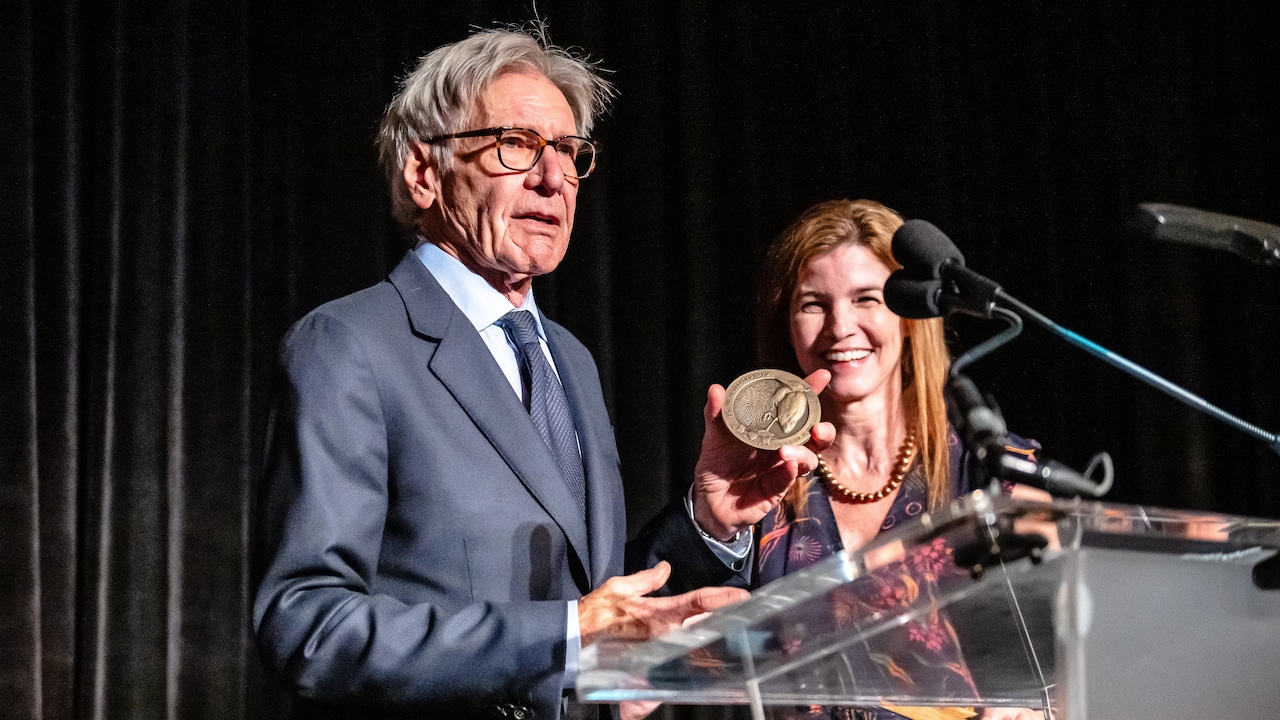Copyright AL.com

A foundation carrying on the legacy of a legendary Alabama scientist has given an inaugural conservation award to one of the stars of the “Star Wars” movies. The E.O. Wilson Biodiversity Foundation announced Thursday that Harrison Ford was the recipient of the first E.O. Wilson Legacy Award for Transformative Conservation Leadership. Ford received the award during the foundation’s “Half-Earth Day” celebration at the Field Museum in Chicago on Wednesday. Wilson, who died in 2021, was an Alabama native who was born in Birmingham and lived in several of the state’s cities during his youth. These included Mobile, where he identified the first known colony of fire ants in the United States while still in his teens. The Nature Conservancy recently named an 8,000-acre tract of the Mobile-Tensaw Delta in his honor. He was particularly known for his study of ants, but his award-winning books also branched into the ways biology has affected human culture, the importance of conservation and aspects of sociology. His 2016 book “Half-Earth: Our Planet’s Fight for Life,” explored the idea that to truly ensure the long-term health of the planet, half of its surface should be set aside as a nature preserve. According to the foundation, the new award “celebrates the extraordinary contributions of individuals who embody E.O. Wilson’s inspirational legacy in conservation science, passion for biodiversity, and action on behalf of all species.” The foundation says that Ford had been a fried of Wilson since the early 1990s, and that they had worked together “to champion the conservation of global biodiversity.” According to the foundation, Wilson named a new ant species after Ford in 2002 and in 2010 the two teamed up to create a science writing award. “Harrison has devoted his time and voice to environmental causes for over 30 years,” said Dr. Paula J. Ehrlich, President and CEO of the foundation. “His life is a testimony to the conviction that successful conservation efforts require not only scientific understanding but also the ability to translate complex ecological concepts into compelling public narratives that inspire action and advance enduring conservation policy.” Ford is on the foundation’s board of advisors and has served on the board of directors of Conservation International for 25 years. At the beginning of 2025 he published a call to action titled “Listening to the Quiet,” written in partnership with Pulitzer Prize-winning author Anthony Doerr. “Young people give me hope,” Ford said as he accepted the award. “They are more fearless, more connected to the Earth, and more capable of changing power than we ever were. We just need to get out of their way — and help them lead us toward a world where people and nature can thrive together.”



